Tony Hawk's Pro Skater 5 needs to find its inner Mario
Tony Hawk's Pro Skater 5 has to get so much right if it's hoping to match the timeless magic of the first four THPS games. It's been 13 years of unfocused sequels and misguided spin-offs since the Pro Skater moniker got dropped, with games like Downhill Jam and Ride dragging Tony's once-lauded brand through the mud. And at the risk of sounding like someone who's suffered one too many wipeouts without a helmet, I'm convinced that things started to go off the rails when developers stopped treating Tony Hawk games as what they really are: 3D platformers.
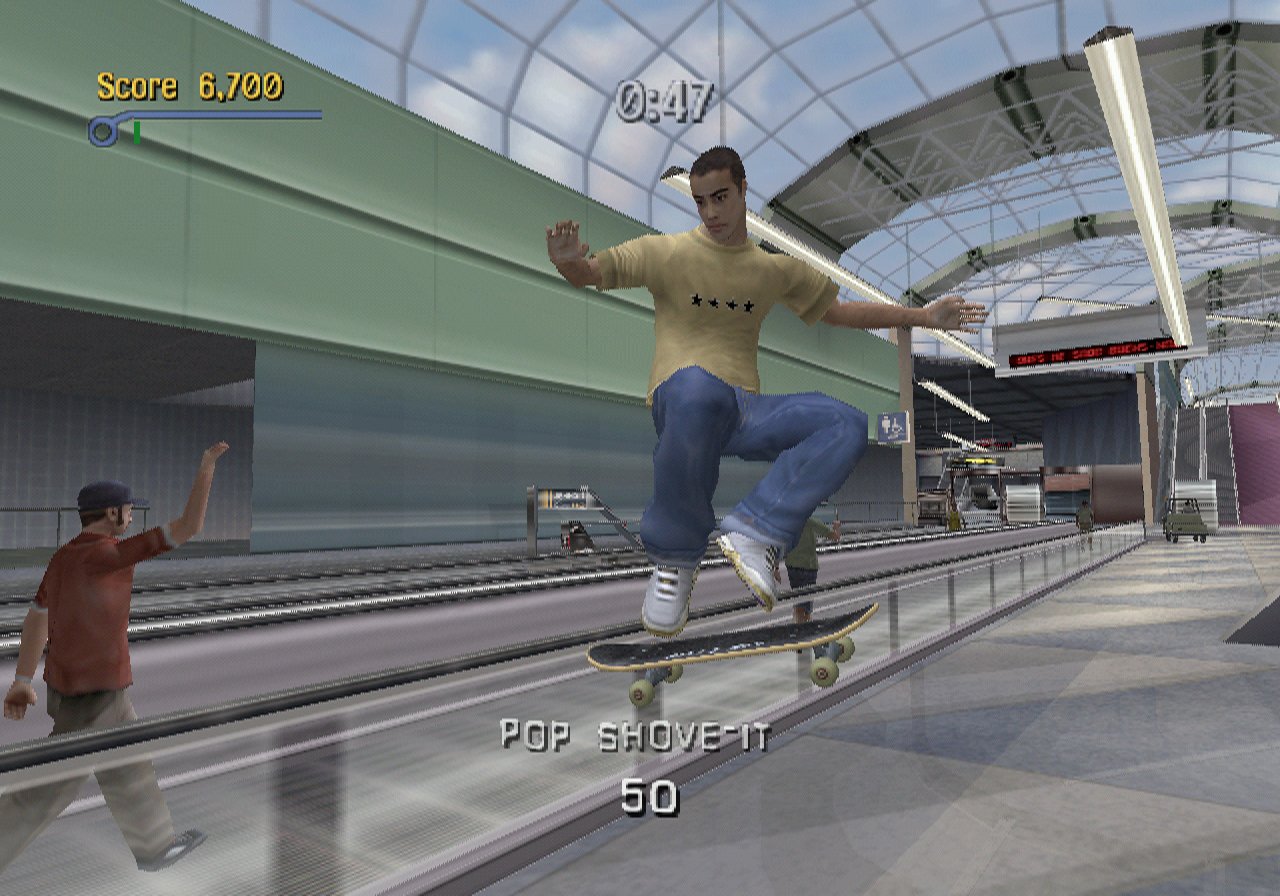
There are two core principles that define the best 3D platformers: interesting levels to explore, and engaging ways to traverse them. Banjo-Kazooie, Spyro, Sly Cooper, Ratchet and Clank - they all put intense focus on ensuring that you always enjoy the act of moving through the game world, even if you're not actively thinking about the fluidity of the character controls, or the way stages are designed to constantly guide you in the pursuit of new areas. And when it comes to illustrating the Tony Hawk connection, I can think of no better comparison than the most influential 3D platformer ever made: Super Mario 64.
They may not look it, but Mario and Tony have a lot in common. Both respond to your inputs through tight, responsive controls and rock-solid physics. Both drop you into large, open areas that give you the freedom to approach objectives however you see fit, without being so giant that you're constantly getting lost. And most crucially, both have a defined set of mobility options that must be mastered if you are to succeed. Mario has backflips, triple jumps, cartwheel flips, wall jumps, and long jumps. Tony and his fellow skaters are all about the ollie, grinds, manuals, reverts, and fastplants. All these movement abilities are the satisfying means to a clear, unrestricted end: reaching whatever part of the level currently interests you.
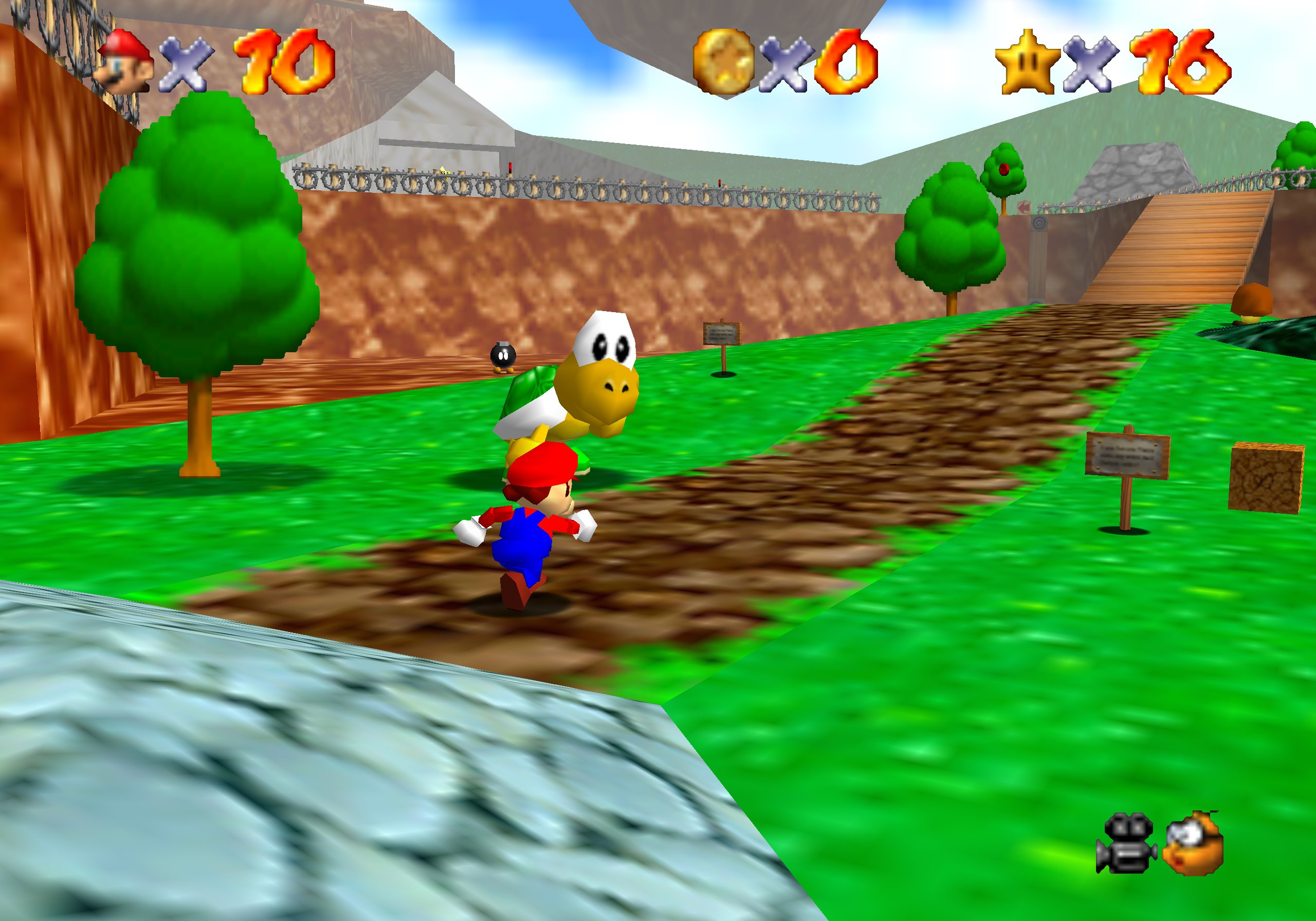
Experiencing THPS is as much about the movements that carry you to your goal as the goal itself. Your physical maneuverability is a function of your mastery over the controls, mixed with your recognition of the intersecting trick lines that criss-cross through each level. Mario's stages operate in much the same way, turning every unfamiliar area into an exciting opportunity to get a lay of the land. Once you've gotten your bearings, you can focus on discerning the most efficient, fun, or impressive way to roam through these nonlinear playpens. Reaching your goal isn't about skating in a straight line, it's about the freedom you have to experiment with your methods of locomotion. Players are lured into performing little hops and flips as they guide Mario toward his target, if only to experience the satisfying feedback of these responsive actions. When playing THPS, you're constantly wanting to kickflip over stair sets and grind across rails on the way towards your objective, for the simple enjoyment of feeling out the boundaries in the space you're given. The size of the environments may vary, but the fun inherent to testing the limits of your movement stays constant.
Yes, the Pro Skater games are ultimately about racking up points. Pro Score objectives may not have the same tangibility of Mario's stars, but the methods of exploring and experimenting with your movement capabilities are effectively the same. As you cruise around on your board through the intricately designed levels, there's a sense of discovery, as you piece together all the pathways that interconnect throughout the environment. Slowly but surely, the little subsections you've charted start to flow together, until you've got a bigger picture of how you want to move through the level - at which point, the whole creative process of planning your ideal trick line starts over.
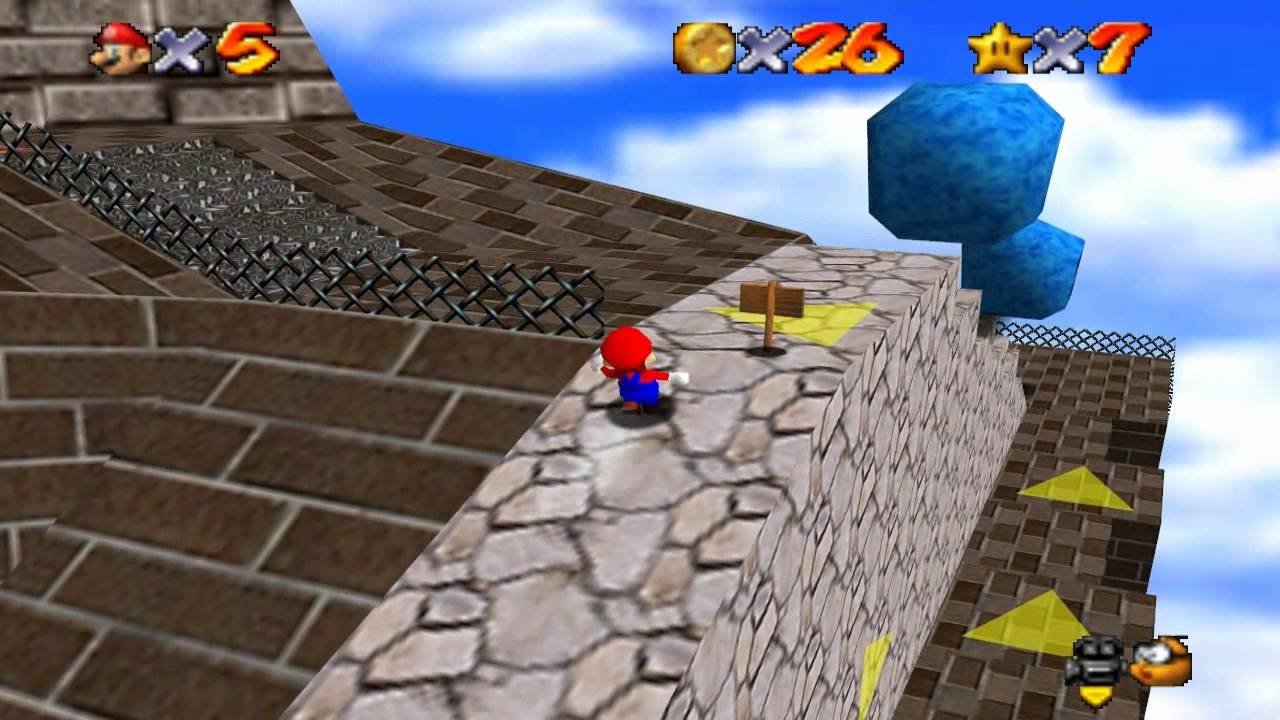
Netting high scores is only possible once you've figured out your favorite lines, and those ramp-to-grind-to-manual combos can only be mapped out in your head after you've explored every nook and cranny of a given stage. You have the power to determine if Mario will simply run up a ramp, or wall jump to its apex, or do a backflip off a tree to skip the part of the level that awaited at the top of said ramp. Tony and co. are devising their own approaches to objectives and big combos in much the same way, just on four wheels instead of two feet.
The Tony Hawk franchise lost its way when the principles of 3D platforming - well-defined movement and interesting levels - stopped being the focus. Underground wasn't awful, but by introducing the ability to leap off your skateboard and run around on two feet, it threw the established rules of mobility into disarray. Beyond feeling floaty and unresponsive, being able to dismount from your primary mode of transportation is a harsh, unnecessary disconnect from the core of what Tony Hawk games are all about: a way to experience the smooth, fluid momentum of skating. It's the same kind of awkward, discombobulating transition that dismays some Mario loyalists when they boot up Super Mario Sunshine for the first time and have to come to grips with the FLUDD. By diluting the core mechanics and rules that govern your navigation, these attempts at innovation actually cheapen the player's mastery over the established methods of movement. For many players, the initial discomfort diminishes any incentive to recalibrate their skills to incorporate such unwieldy tweaks.
Weekly digests, tales from the communities you love, and more
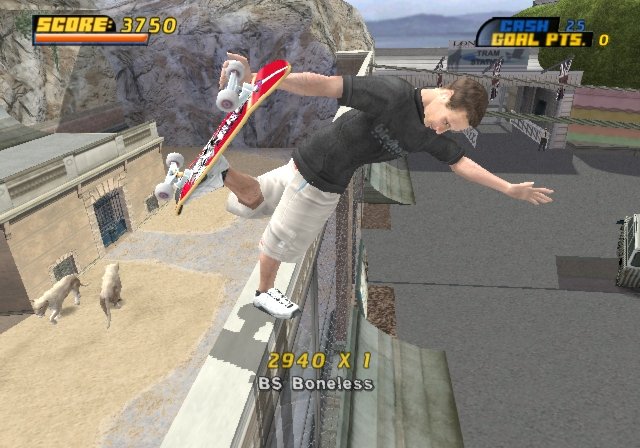
As for the stages, each game after THPS4 seemed to care less and less about crafting cleverly constructed, visually interesting worlds to explore. In place of fresh, unconventional themes like airports, zoos, and neon-lit skateparks, the post-Underground games are full of drab, unexciting maps that feel either empty or claustrophobic, like they've sacrificed discoverability for the sake of mildly accentuated realism. Without any real incentives to venture beyond the possibilities of the simplistic trick lines presented to you, the whole engaging feedback loop of the original THPS games falls apart. There's no reason to seek out new routes using your dynamism, which in turn dampens your creativity for making your own way.
Think back to your fondest memories of the Pro Skater games, if you're fortunate enough to have some. You'll no doubt recall the excitement of unlocking secret characters like Spider-Man and Darth Maul, or the joy of listening to eclectic soundtracks with artists ranging from Powerman 5000 to Del tha Funkee Homosapien. But what really stays with you is the sense of exploration. The thrill of discovering new trick lines inexplicably arranged on the roof of a school building. Busting out of a hangar and onto a snowy helicopter pad that was previously closed off. Snagging a Secret Tape hidden outside the upper levels of a bat-infested suburban mansion. Instead of seeking out 1-Ups and collecting red coins, you're constantly locating unique gap bonuses and picking up all the pulsing SKATE letters suspended in mid-air.
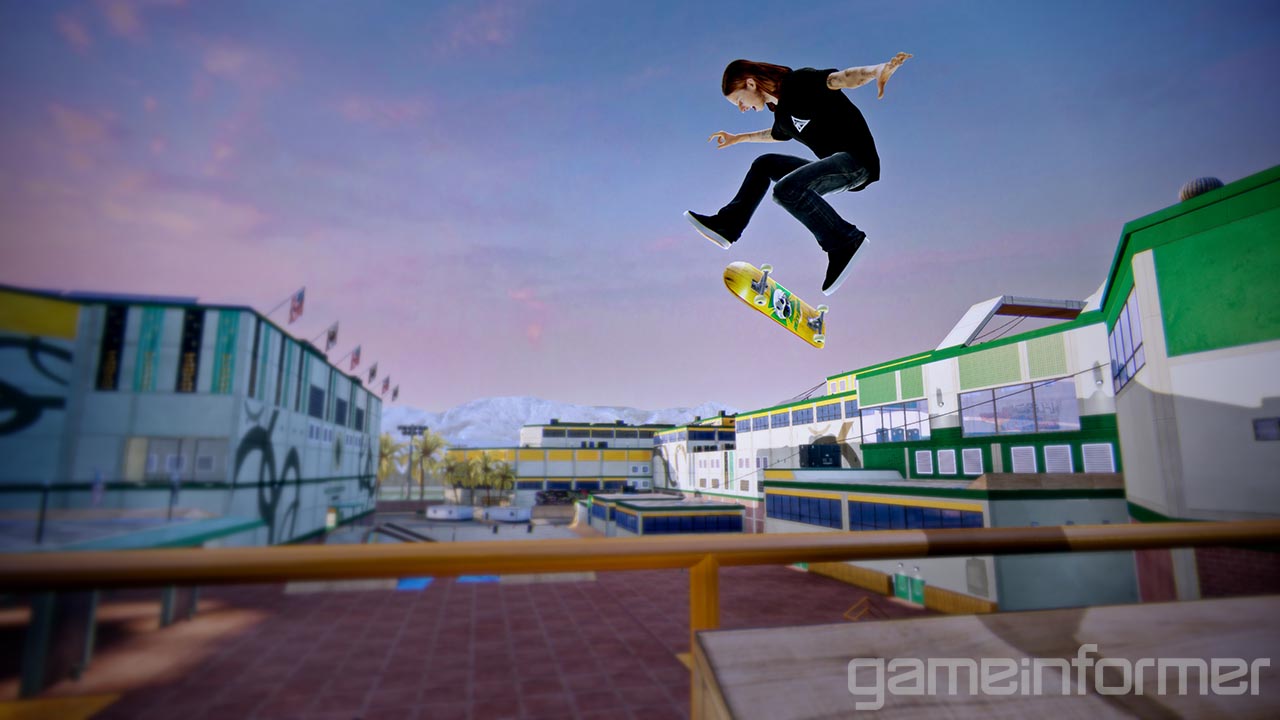
It's too early to say if THPS5 will recapture the spirit of the 3D platformer, and thus redeem Tony's brand in the eyes of gamers. Additions like power-ups and mid-combo dodgeball shooting sound sketchy - but then, unique items and amusing minigames are staples of the platforming genre. Levels that, as Game Informer puts it, "draw inspiration" from old themes, sound like they could be a waste of space in the compact nine-level count, but rumblings of a skatepark in space and loads of secret areas have me hopeful that there can be a return to the more outlandish concepts of old. But really, I won't know if THPS5 can live up to the Pro Skater legacy until I actually get my hands on a controller and play. Just like any 3D platformer, screenshots and trailers will only tell you so much; tight controls and captivating exploration are simply things you need to experience for yourself.
Lucas Sullivan is the former US Managing Editor of GamesRadar+. Lucas spent seven years working for GR, starting as an Associate Editor in 2012 before climbing the ranks. He left us in 2019 to pursue a career path on the other side of the fence, joining 2K Games as a Global Content Manager. Lucas doesn't get to write about games like Borderlands and Mafia anymore, but he does get to help make and market them.



